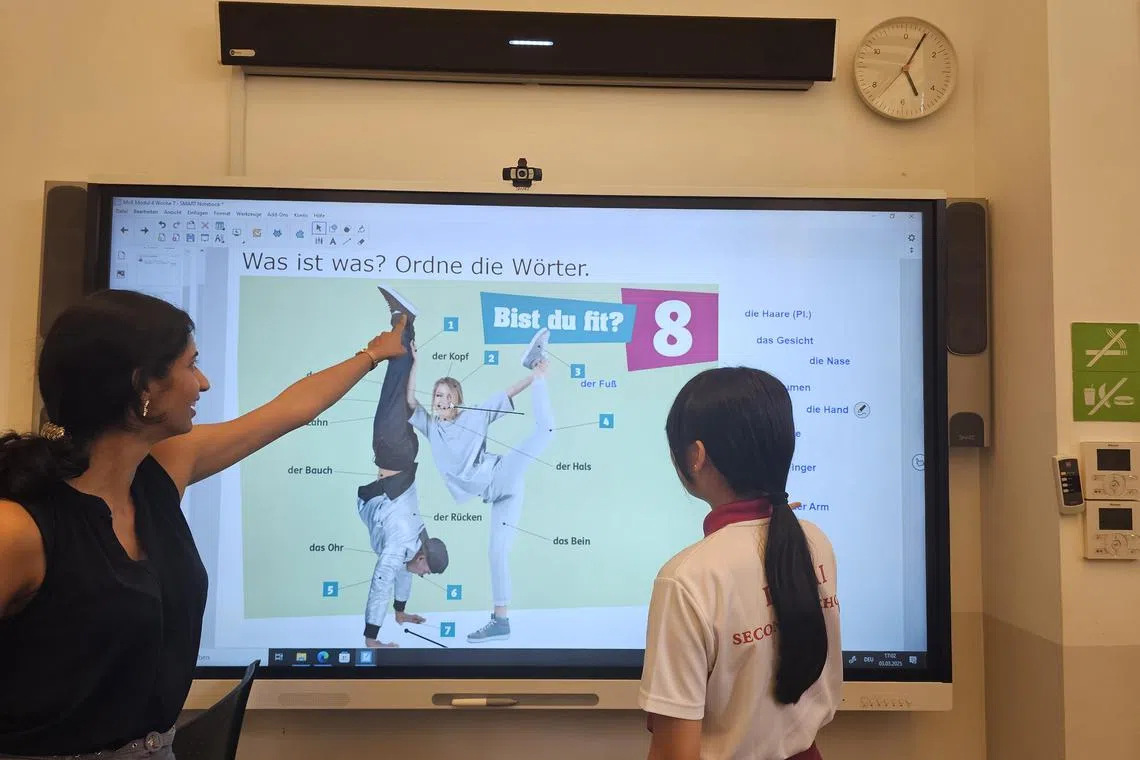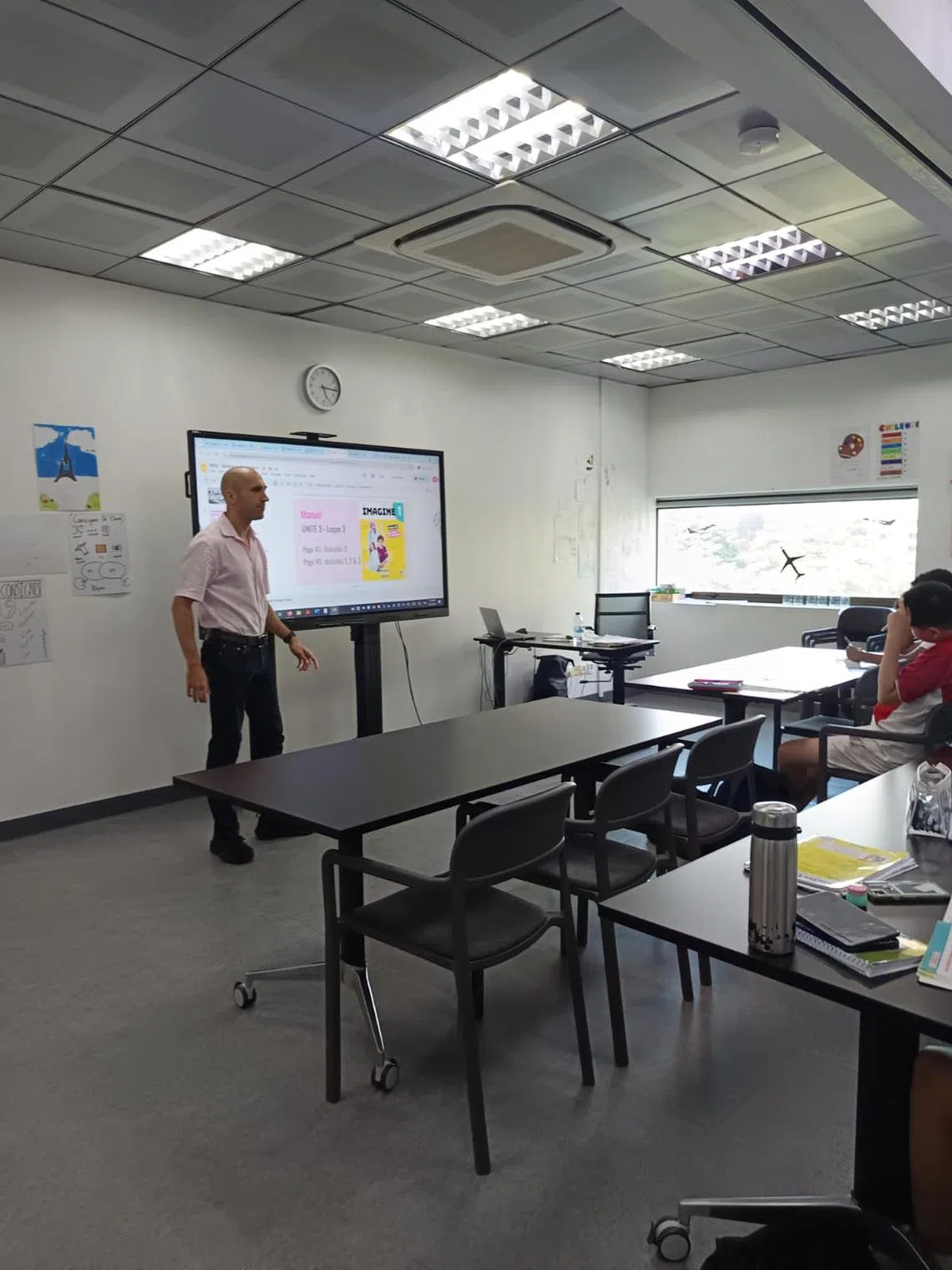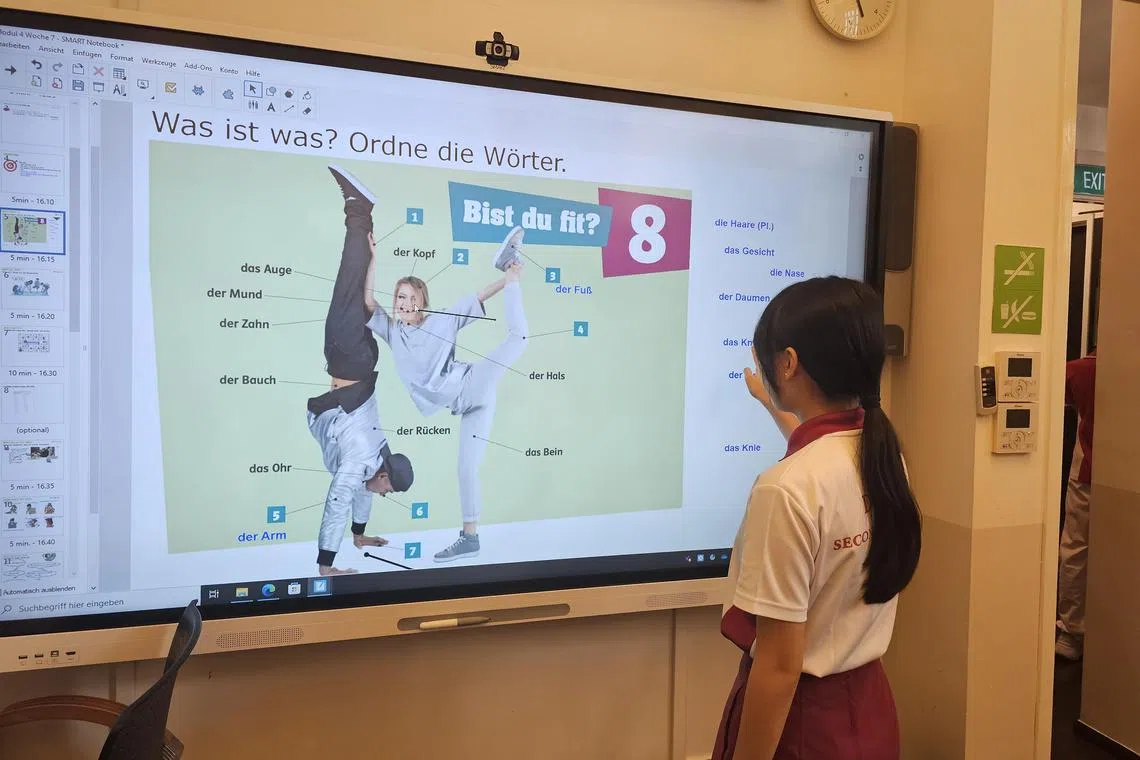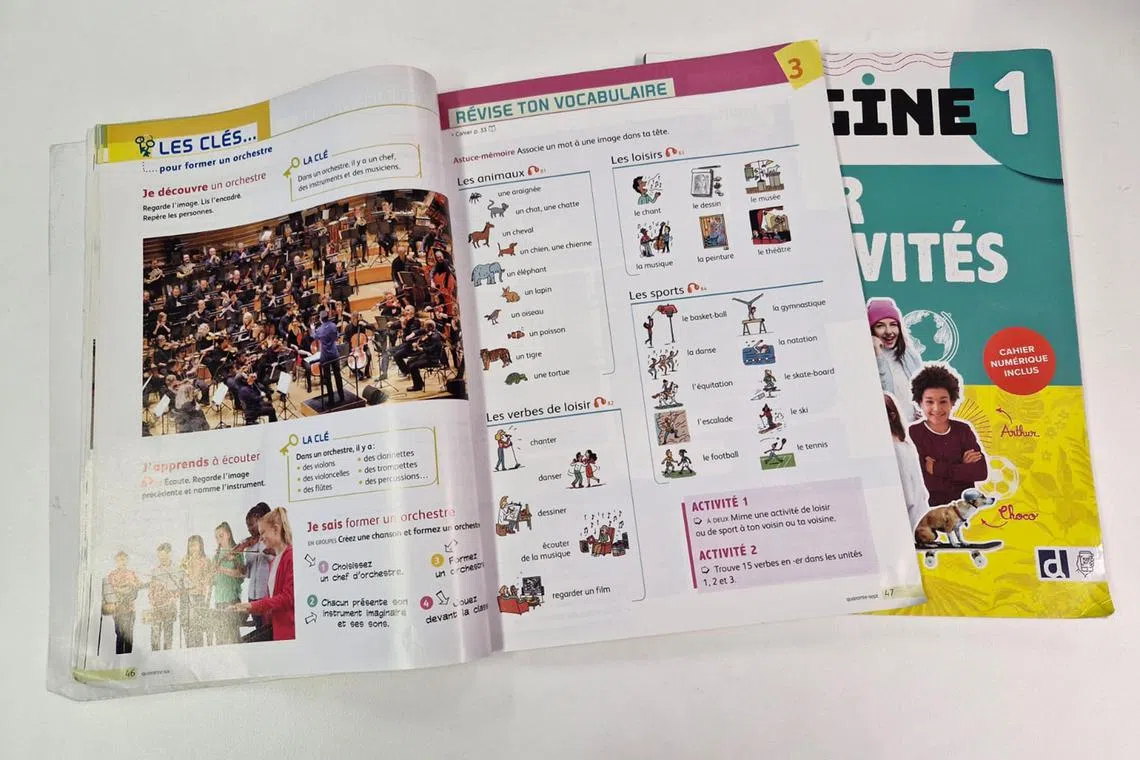‘I feel happier learning’: More students pick up French, German under flexible language programme
Sign up now: Get ST's newsletters delivered to your inbox

About 500 students from 21 secondary schools have enrolled in the Modular Third Language programme.
PHOTO: COURTESY OF CAITLYN CHAN
SINGAPORE – Teenager Adam Jamari, who can already speak three languages, jumped at the chance to pick up a fourth in 2024 through a flexible language programme.
The 14-year-old Yuying Secondary School student, who knows English, Malay and Mandarin, said he wanted to learn French after he heard people speaking the language, as he likes how it sounds.
He is one of 500 students across 21 secondary schools who have enrolled in a pilot initiative by the Ministry of Education (MOE) called Modular Third Language Programme, which gives students the opportunity to learn French or German.
The programme was launched in July 2023
Unlike the existing third language programme – where students take a language as an examinable O- or A-level subject – this modular system lets students start, stop and resume learning between terms to fit their schedules.
Each module is eight weeks long, and students can take as many modules as they want based on their ability and interest.
French classes are held at Alliance Francaise de Singapour, while German learners go to Goethe-Institut Singapore. Lessons are fully subsidised, but students have to pay for learning materials.
They can also pursue internationally recognised certifications at different proficiency levels.
Adam, who started French classes in January 2024 and has completed three modules, said he enjoyed the cultural exposure and learning more about French media and literature.
“My teachers (in the French school) tend to share a lot about their lives back home” and often discuss French customs, he added.
The flexibility reduces the pressure associated with learning a language for Adam, who attends French classes two hours every week.
“I am more relaxed, and I feel happier learning the language because I can just study when I want to,” he said.

Adam, who started French classes in January 2024, said he enjoyed the cultural exposure and learning more about French media and literature.
PHOTO: COURTESY OF ADAM JAMARI
For Damai Secondary School student Caitlyn Chan, 15, learning German opens doors to potential university studies in Germany, where tuition is free for both local and international students.
She is enrolled in her fourth module, and is able to introduce herself and her family in German, and hold a basic conversation.
Caitlyn said she enjoys learning German, which for her is easier than learning Mandarin, adding that she listens to German songs to complement her learning.
“It’s easier to learn how it is spoken naturally by people who are fluent in that language,” she added.
MOE said students’ feedback to the pilot programme has been “positive and encouraging”, adding that it will study the findings to see if the programme could be scaled up to include more schools and languages.

For Damai Secondary School student Caitlyn Chan, learning German opens doors to potential university studies in Germany, where tuition is free.
PHOTO: COURTESY OF CAITLYN CHAN
Language learning beyond grades
Experts whom The Straits Times spoke to said these third language offerings help to cultivate in students a love for languages, and let them learn in a “comfortable and carefree” way.
Associate Professor Lim Beng Soon, head of the Malay language and literature programme at the Singapore University of Social Sciences, said that learning a language need not purely be for transactional reasons where people can get self-conscious about making mistakes – it can also be seen as a way to form a connection with others.
It is especially important that students can pick up a language without rules and grades, like in this programme, he said, adding that these programmes help to inculcate in them a love of languages and language learning.
“Learning a language need not be a rigidly structured affair,” Prof Lim said. “To be a good language learner, it starts with an intrinsic love for languages and to perceive language as your friend.”
Professor Dennis Tay, head of linguistics and multilingual studies at Nanyang Technological University, said that this is why language learning curriculum – even for the mother tongue – should focus on conversational skills and cultural exposure, rather than the more technical aspects like semantics or syntax.
“The focus should be on enjoyment and exposure, rather than being framed as an academic subject with its attendant pressures,” he added.

Each module is eight weeks long, and students can take as many modules as they want based on their ability and interest.
PHOTO: COURTESY OF ADAM JAMARI
Since 2005, MOE has offered conversational Chinese and Malay programmes at the primary and secondary levels for enrichment, with around 30,000 students participating yearly.
In 2025, the ministry will pilot self-learning digital programmes for conversational Vietnamese, with plans to explore other South-east Asian languages depending on students’ interests. Primary and secondary school students will be able to access these programmes on the Singapore Student Learning Space platform.
Prof Tay said these languages should be given more emphasis for reasons such as geopolitical and cultural proximity, and practicality.
An important consideration, though often overlooked, is how learning these languages foster empathy and a sense of shared future with these neighbouring regions, he added.
Associate Professor Izumi Walker, director of the Centre for Language Studies at the National University of Singapore, said that proficiency in these languages offers strategic advantages in regional trade, diplomacy and cross-border collaborations.
However, student interest and real-world application are key for language learning to be effective, she added.
“To maximise the benefits of these programmes, students should be encouraged to engage in immersive experiences such as cultural exchanges, study-abroad programmes, and interactions with native speakers,” Prof Walker said.
Language-learning apps could be a way to sustain students’ engagement and for their practice, she suggested.
Prof Walker added: “Ultimately, fostering a lifelong love for language learning is crucial for the success of these initiatives.”
Correction note: In an earlier version of the story, we misspelled the name of student Adam Jamari. This has been corrected.



